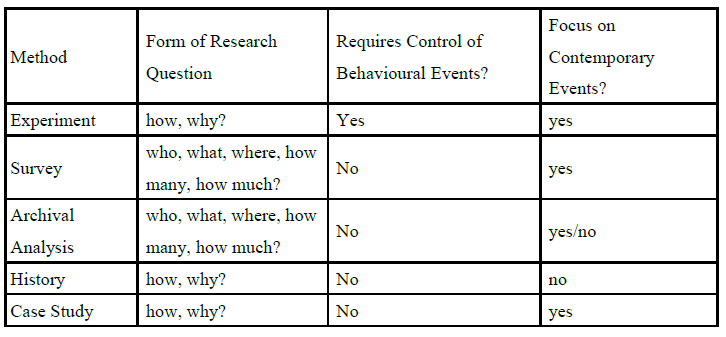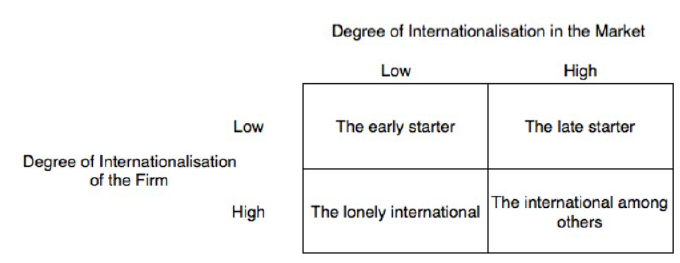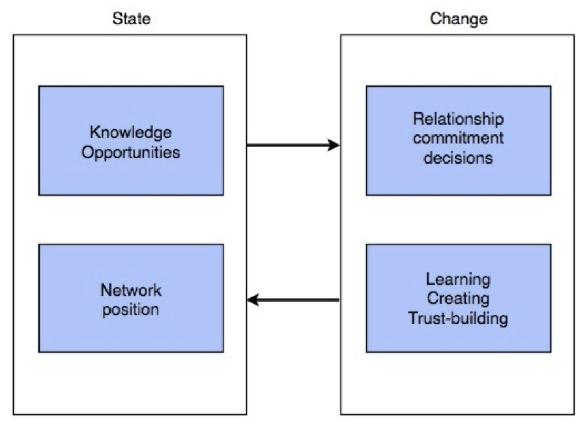ABSTRACT
This thesis aims to describe how Swedish firms have established themselves on the Japanese market with help from their business network. This research has been conducted in the light of the economic recession and the complicated Japanese business networks. We have chosen to use a qualitative approach and by doing so we received the three respondents’ views of doing business on the Japanese market.
We have focused this thesis on the importance of networks and relationships and have chosen to use new theories regarding business networks and business relationships for the base of our research and to link them with our empirical findings. The interviews conducted have been focused on three respondents who all have broad experience of the Japanese market. These three interviews have been compared to each other in our analysis and through this we have drawn our conclusions. We also give recommendations for Swedish firms who aim to establish themselves on this market.
METHOD

Figure 2.1: “Relevant Situations for Different Research Methods” Yin (2009).
We have formulated our research questions with “how” in order to get a broader understanding of the phenomenon, because of this, according to Yin (2009) the survey and archival analysis strategies are not applicable on our thesis. We do not want to control the behaviour, nor do we want to manipulate it somehow in our study and since our research object is a contemporary event the only alternative we have left if we follow the figure is the case study.
THEORY

Figure 3.1: Four cases of Internationalization of the Firm, Hollensen (2007).
A firms degree of internationalisation shows to what extent the firm has positioned itself in different foreign networks, how strong those positions are and how integrated they are in the networks. They also argue that the network model has consequences for the internationalisation of the market. The degree of internationalisation in the market is measured in how prone customers are to purchasing from foreign suppliers (Hollensen, 2007).

Figure 3.2: Exporter – Importer Relationship Model Rao (2006).
In this model Rao (2006) suggests that a successful relationship starts of with Dependence and Trust. As the relationship evolves he argues that the most successful relationship stage would be the commitment stage and thereby the most desired stage since a more committed relationship tends to be more profitable for both firms.

Figure 3.3: The business network internationalization process model 2009 version, Johansson and Vahlne, (2009).
In the model it is assumed that the company strives to increase its long-term profit, which is assumed to be equivalent to growth. The firm is also striving to keep risk taking at a low level. The strivings mentioned are assumed to characterize decision making on all levels of the company. With these premises and the state of the economic and business factors which constitute the frame in which decision is taken, the model assumes that the state of internationalisation affects perceived opportunities and risks which in turn influence commitment decisions and current activities (Johanson & Vahlne 2009).
EMPIRICAL FINDINGS
Norden
Norden is a Swedish manufacturer of tube handling and tube filling machines and are world leading within this segment. Norden was founded in 1980, originating from Arenco, and has their manufacturing plant in Kalmar, Sweden. In 2004 Norden became a member of the Sirius Machinery Group which is owned by Nordstjernan. Norden has a long experience of pharmaceutical, cosmetics, toothpaste, food and chemical product tubes.
The packaging systems they offer have a high degree of customization in the speed and range from 25-500 tubes per minute. The competitive advantages of Norden are the high quality products that they provide and the after sales service of highest standard. Norden as a company work to transfer their values about integrity, excellence, openness and honesty to the individual level in the company.
They focus their corporate strategy on achieving sustainable growth through good and stable profitability and a continuous development of personnel. As an experienced actor in their field they also help their customers after sales with improving efficiency and try to raise the product quality. At the same time Norden also put an effort for enhancing safety and being environmental friendly. These factors provide Norden with a good competitive advantage, which in turn means that they can compete better in this internationalised market (Norden).
ANALYSIS
By connecting our empirical findings with the theoretical framework we will account for how Swedish firms have handled their network and relations to establish themselves on the Japanese market. After this chapter we will draw our conclusions and use this basis to validate our findings.
Degree of Internationalisation
By looking at Hollensen’s (2007) model, four cases of internationalisation of a firm, we believe that Norden would qualify in the group of international among others. Norden operates in an internationalised market where customers are used to purchasing foreign products; this can be seen on the Japanese market where their biggest competitor is a German company. Norden as a company is a highly internationalised company with operations around the world.
CONCLUSION
In this chapter we conclude what we have discovered in our research and we will hereby conclude what is important when managing business networks and business relationships on the Japanese market.
The network should be regarded as a very important factor when trying to establish a new operation on a foreign market. This is due to that firms which seek to expand their operations can create an awareness of opportunities and hereby draw advantages on their network to gain key components such as knowledge and understanding of a foreign market, through external and internal partners. We believe that gaining more knowledge on how a market values and act in different situations is vital for the success and future development of the firms operations on a foreign market.
When looking at our focal firms and the various degrees of internationalisation of their respective industry, we can conclude that the result will vary due to what industry the firms are acting within, the result will also be affected by the products or services that the firm provides. However by investigating the results and the development of our focal firms on the Japanese market it can be concluded that the lonely international are not as dependent on their business partners as the others.
When analysing internationals among others, which implies that they have experience of foreign markets and thereby a higher degree of internationalisation, we conclude that their experience should provide them with better understanding of the Japanese market and provide them with the understanding needed to develop their business network, and in that sense the ability to establish themselves on the market.
Source: Linnaeus University
Authors: Jonas Ivarsson | Erik Pira | Ulf Stomberg